Co roku, w pierwszy piątek sierpnia, na całym świecie obchodzony jest Międzynarodowy Dzień Piwa i Piwowara (International Beer Day). To święto nie jest tylko okazją do celebrowania jednego z najstarszych napojów na świecie, ale też do uhonorowania pracy wszystkich piwowarów. O tym jak tworzyć i serwować piwo opowie Kuba Rosiek – piwowar Browaru Trzech Kumpli, czyli marki, która od ponad 10 lat zajmuje się warzeniem kraftowego piwa.
Food and Design: Cześć Kuba!
Kuba Rosiek: Cześć!
FaD: Niebawem będziemy obchodzić wielkie święto, mamy na myśli Dzień Piwa i Piwowara. Czy chciałbyś zdradzić nam na czym polega Twoja codzienna praca?
K.R.: Moja praca łączy tak naprawdę dwa osobne stanowiska. Pierwsze to posada głównego piwowara koncepcyjnego, czyli osoby, która śledzi rynek piwa na świecie i trendy na nim panujące. Na tej podstawie proponuje piwa, które warto uwarzyć, by uzupełnić i uatrakcyjnić portfolio browaru. Następnie tworzę receptury tych piw, zamawiam odpowiednie surowce i doglądam warzenia, fermentacji i leżakowania. Druga gałąź mojej pracy to kontrola jakości i planowanie produkcji, czyli monitorowanie sprzedaży piw, które są w stałej dostępności, regularne wprowadzanie ich na warzelnię tak, by zawsze były dostępne, ale jednocześnie były możliwie najświeższe. Każdy tank piwa, a mamy ich naprawdę sporo, traktuję indywidualnie, sprawdzając jakość piw na każdym z etapów jego produkcji, jak również już po rozlewie. Dzięki temu, wykorzystując nowe surowce czy techniki, mam możliwość rozwijania i modyfikowania receptur piw, które są z nami już od paru lat. Ciągle dążymy do tego, by produkt o jak najlepszej jakości opuszczał browar i trafiał do naszych klientów.
FaD: Dla piwnych smakoszy Twoja praca wydaje się być idealna. Jak zostać piwowarem?
K.R.: Teraz na pewno jest o to łatwiej niż jeszcze parę lat temu, gdy ja zaczynałem. Można ukończyć odpowiednie studia w tym kierunku – stacjonarne albo podyplomowe. Zwłaszcza te drugie są obecnie popularne wśród moich kolegów po fachu. Inną drogą, ale bardziej atrakcyjną dla piwowarów kraftowych, jest piwowarstwo domowe, czyli warzenie piwa w domu. Potem rozwijanie swojej pasji poprzez uczestniczenie w konkursach piw, ukończenie kursów, branie udziału w konferencjach oraz odbywanie praktyk w browarze rzemieślniczym. Taką drogę ja wybrałem. Ważne, żeby kochać piwo, chcieć to robić i mieć świadomość, że na początku swojej kariery trzeba będzie ciężko pracować i uczyć się tego fachu jako pomocnik piwowara., czyli osoby od każdej możliwej pracy w browarze, włącznie z tą najcięższą.
FaD: Czy osoby wybierające ten zawód, muszą się charakteryzować czymś szczególnym? Jaka umiejętność bądź cecha charakteru jest w tej pracy najważniejsza?
K.R.: Tutaj mogę się wypowiedzieć wyłącznie o pracy jako piwowar w browarze kraftowym. Wśród rzemieślników najważniejszym jest traktowanie piwowarstwa jako pasji. Z takim podejściem ciągły rozwój i nauka, które są w tym zawodzie kluczowe, przychodzą nieco łatwiej, naturalniej. Bardzo przydają się również rozbudowane umiejętności sensoryczne. Dzięki temu, próbując brzeczki czy piwa, możemy na podstawie profilu aromatyczno-smakowego wyciągnąć wnioski na temat tego, co można zmodyfikować, aby piwo było lepsze. Trzeba mieć też świadomość, że pracując w małych browarach rzemieślniczych czy restauracyjnych, rola piwowara nie ogranicza się wyłącznie do warzenia piwa. Oprócz tego, piwowar musi sporo dźwigać, może być narażony na skrajne temperatury czy kontakt z silnymi środkami chemicznymi oraz nierzadko pracować na nocne zmiany. Zatem odpowiednie zdrowie jest bardzo istotne. Tak samo jak sytuacja rodzinna, która pozwoli piwowarowi zostawać na nocnych zmianach, czy brać awaryjne nadgodziny, gdy np. proces filtracji się opóźni.
FaD.: Z Browarem Trzech Kumpli związany jesteś już od ponad pięciu lat. Czy na przestrzeni tego czasu zaobserwowałeś jakieś zmiany w branży? Jak w Twoich oczach ewoluowało piwowarstwo?
K.R.: Ostatnie pięć lat nie było łatwe dla branży piwa kraftowego. Branża piwowarska bardzo mocno odczuła okres lockdownu parę lat temu. Wiele browarów było skupionych głównie na sprzedaży piw w beczkach do lokali gastronomicznych i nagle z dnia na dzień stracili źródło zarobków. To sprawiło, że teraz browary chętniej inwestują w profesjonalnie linie rozlewu piw do puszek i butelek oraz pasteryzatory. Jednocześnie powstało bardzo dużo nowych projektów, a piwo rzemieślnicze zaczęło się pojawiać w wielu restauracjach, pubach, małych sklepach czy marketach. Przez ostatnie pięć lat bardzo zwiększyła się również popularność piw bezalkoholowych. Jeszcze parę lat temu browary kraftowe praktycznie nie warzyły piw bez alkoholu, a teraz trudno znaleźć takie, które nie mają już kilku różnych ,,zerówek” w swojej ofercie. Pojawiają się także piwa specjalne np. o niskiej zawartości cukru, bezglutenowe, organiczne, wegańskie, czy niskoalkoholowe.
Natomiast jeżeli chodzi o samo piwowarstwo, to tutaj również zaszło sporo zmian, przede wszystkim w zakresie chmielenia piwa. Cały czas pojawiają się nowe odmiany chmielu, które zaskakują różnorodnością aromatów, które wnoszą do piwa. Również sam sposób chmielenia ewoluował, ponieważ teraz zdecydowanie intensywniej chmieli się piwo na aromat niż na goryczkę. Piwowarzy coraz chętniej zagłębiają się w tajniki pracy drożdży, np. wykorzystując tzw. proces biotransformacji w celu uzyskania intensywniejszych piw. Ogólnie piwowarstwo, jako dział biotechnologii, stale się rozwija i oferuje piwowarom wiedzę, która pomaga doskonalić proces warzenia piwa.
 źródło: Browar Trzech Kumpli
źródło: Browar Trzech Kumpli
FaD: …a jak zmienił się Browar Trzech Kumpli? Czy w najbliższym czasie planujecie zaskoczyć nas jakąś nowością?
K.R.: Staramy się obserwować rynek i reagować na potrzeby naszych odbiorców. Wprowadziliśmy do oferty puszkowe wersje naszych piw, nie rezygnując z butelek, więc klient może sam zdecydować, w jakim opakowaniu będzie pił nasze piwa. Wszystkie nasze piwa są wegańskie, a dla kilku najbardziej popularnych pozycji zdobyliśmy, jako pierwsi w Polsce, międzynarodowy certyfikat wegańskości V-Label. Znacząco rozbudowaliśmy także linię Unplugged, czyli serię piw bezalkoholowych. Jedno się tylko nie zmienia – jakość produktu jest u nas zawsze na pierwszym miejscu.
W tym roku świętujemy nasze 10. urodziny i tej okazji na rynek właśnie trafiło aż sześć nowych piw, w tym bezalkoholowa wersja naszego flagowego piwa Pan IPAni oraz aż trzy różne wersje Imperialnego Stoutu leżakowanego przez parę lat w beczkach po bourbonie z różnymi dodatkami. Użyliśmy Suski Sechlońskiej, czyli wędzonej śliwki, regionalnego produktu z Beskidu Wyspowego, prażonego kokosa i ziaren kakaowca oraz suszonych owoców: daktyli, fig i rodzynek. Mamy nadzieję, że do końca roku jeszcze zaprezentujemy kilka premier, m.in Grodziskie, czyli jedyny autentyczny polski styl piwny, ale w wersji z dodatkiem polskich owoców. Chcemy nim zachęcić nowe osoby do spróbowania tego niełatwego w odbiorze wędzonego stylu piwa.
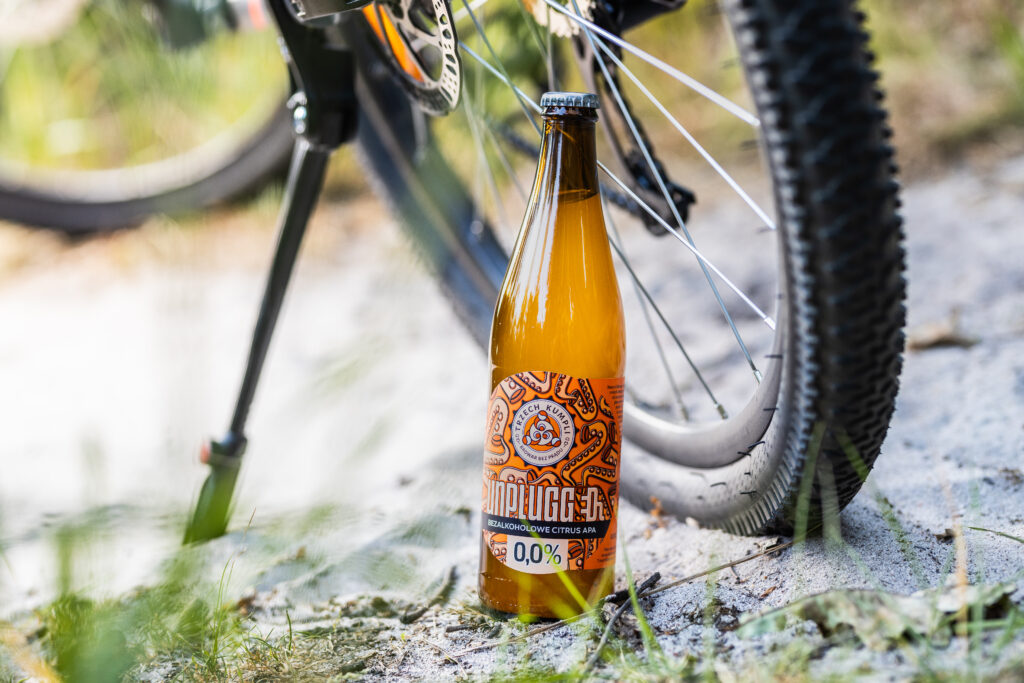
źródło: Browar Trzech Kumpli
FaD.: Jakbyś miał podpowiedzieć, którego piwa z Browaru Trzech Kumpli spróbować jako pierwszego, które by to było?
K.R.: Jest to bardzo trudne pytanie, bo każdy ma inny gust i dla każdego inna pozycja z naszego portfolio będzie bardziej atrakcyjna. Warzymy piwa w bardzo różnych stylach i w sumie każdy znajdzie coś dla siebie. Natomiast jeśli miałbym wskazać to jedno, od którego warto zacząć przygodę z naszymi piwami, będzie to Pan IPAni, czyli piwo, które jest z nami praktycznie od początku działalności, a jego popularność stale nas zaskakuje i ogromnie cieszy. Pan IPAni to piwo w stylu Wheat India Pale Ale, niesamowicie soczyste, ekstremalnie pijalne i niezwykle bogate w liczne owocowe aromaty pochodzące od nowofalowych odmian chmielu. Jeśli ktoś nigdy nie pił tego piwa, to koniecznie musi spróbować! Tym bardziej, że teraz jest dostępne w wersji bezalkoholowej. Jest to świetna opcja dla osób ograniczających spożycie alkoholu lub liczących kalorie, gdyż piwa bezalkoholowe są również niskokaloryczne.
FaD: Na koniec, czego życzyłbyś sobie i innym piwowarom z okazji Waszego święta?
K.R.: Przede wszystkim niegasnącej miłości do tego, co robią, coraz lepszych piw spod ich ręki, braku infekcji piw oraz udanej współpracy z drożdżami. Niech omijają ich również wypadki przy pracy czy awarie sprzętu. Bo gdzie się piwo warzy, tam się dobrze darzy!
FaD: Bardzo dziękujemy za wszystkie odpowiedzi!
K.R.: Proszę bardzo i również dziękuję za wywiad!

![MIĘDZYNARODOWY DZIEŃ PIWA I PIWOWARA: KUBA ROSIEK [WYWIAD] 3K-94](https://foodanddesign.pl/wp-content/uploads/2024/08/3K-94-829x415.jpg)
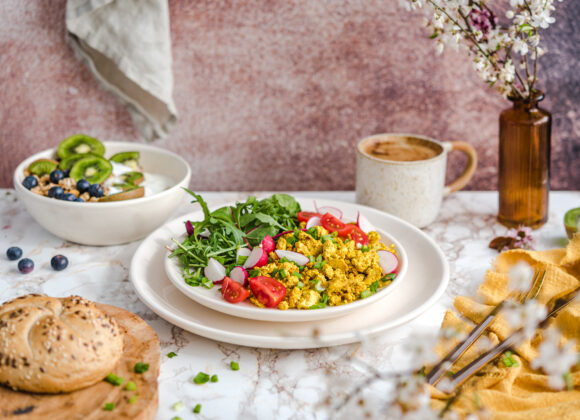

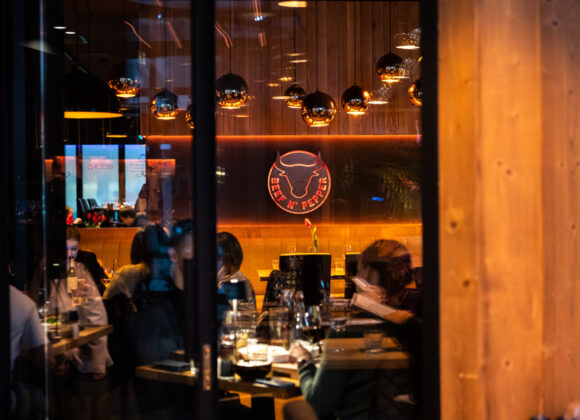
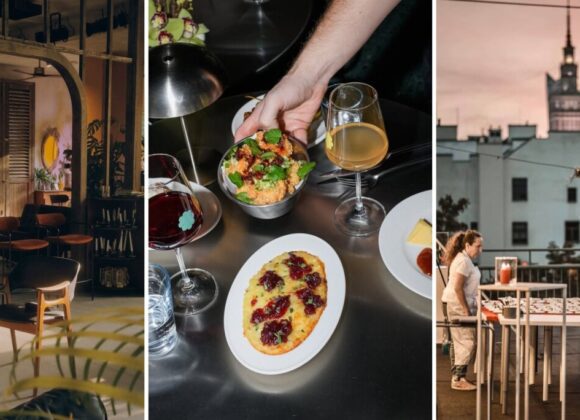
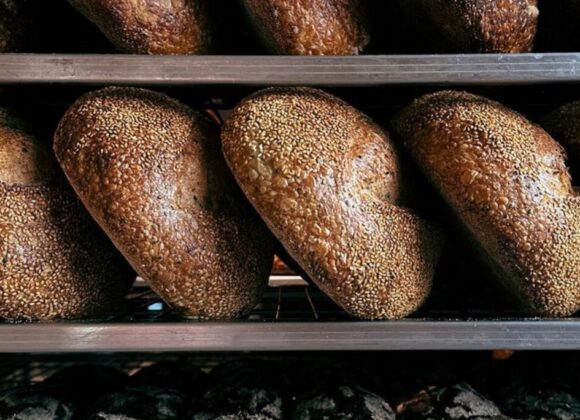



 Młodszy specjalista ds. komunikacji marketingowej i PR.
Młodszy specjalista ds. komunikacji marketingowej i PR.


 Absolwent Uniwersytetu Warszawskiego oraz Szkoły Głównej Gospodarstwa Wiejskiego. W branży HoReCa od ponad 10 lat. Przez lata związany z Grupą Trip, Sobienie Królewskie Golf and Country Club oraz restauracją Florentin w Warszawe.
Absolwent Uniwersytetu Warszawskiego oraz Szkoły Głównej Gospodarstwa Wiejskiego. W branży HoReCa od ponad 10 lat. Przez lata związany z Grupą Trip, Sobienie Królewskie Golf and Country Club oraz restauracją Florentin w Warszawe. Absolwentka Wydziału Architektury Politechniki Warszawskiej na kierunku Architecture for Society of Knowledge oraz Komunikacji Wizualnej na Politecnico di Milano. Specjalistka od budowania nastroju. Doświadczenie zdobywała w kraju i zagranicą podczas licznych warsztatów międzynarodowych (Sevilla, Lizbona, Florencja), stypendium na La Sapienza (Rzym) oraz pracując m.in. w Carmi e Ubertis i ADM Milano.
Absolwentka Wydziału Architektury Politechniki Warszawskiej na kierunku Architecture for Society of Knowledge oraz Komunikacji Wizualnej na Politecnico di Milano. Specjalistka od budowania nastroju. Doświadczenie zdobywała w kraju i zagranicą podczas licznych warsztatów międzynarodowych (Sevilla, Lizbona, Florencja), stypendium na La Sapienza (Rzym) oraz pracując m.in. w Carmi e Ubertis i ADM Milano.








 Menedżer z wieloletnim doświadczeniem w branżach kosmetycznej, spożywczej, dziecięcej. W trakcie swojej kariery związany z firmami takimi jak: L’Oreal, Samsung, Danone-Nutricia, Unilever. W ciągu swojego życia zawodowego odpowiadał między innymi za rozwój sprzedaży i contentu eCommerce w Polsce i krajach Europy Środkowo-Wschodniej.
Menedżer z wieloletnim doświadczeniem w branżach kosmetycznej, spożywczej, dziecięcej. W trakcie swojej kariery związany z firmami takimi jak: L’Oreal, Samsung, Danone-Nutricia, Unilever. W ciągu swojego życia zawodowego odpowiadał między innymi za rozwój sprzedaży i contentu eCommerce w Polsce i krajach Europy Środkowo-Wschodniej. 

























































